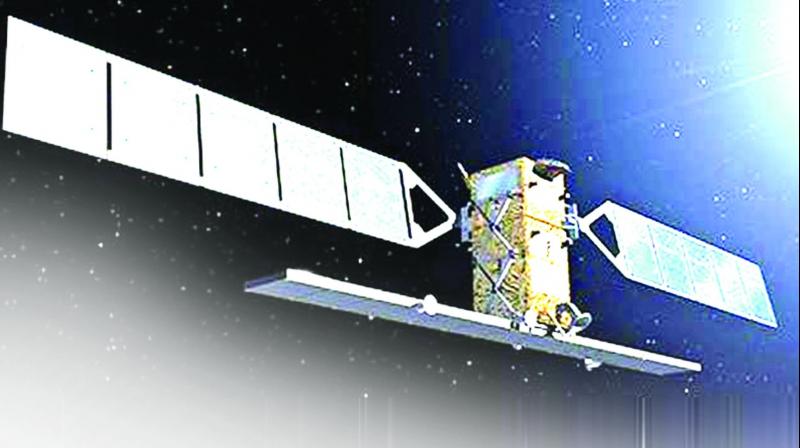Improved version of clocks in IRNSS-1H

Nellore: In view of the problems that plagued the atomic clocks — highly accurate clocks that measure time in terms of vibrations in certain atoms — in one of the seven satellites of Indian Regional Navigation Satellite System, Indian Space Research Organisation’s Satellite Application Centre is working towards ensuring that the other six satellites are not similarly affected. The atomic clocks that run on the element rubidium were imported from Europe. Rubidium is a cousin of sodium and pottasium. The firm which supplied the clocks has updated the three atomic clocks in IRNSS-1H, which is scheduled to be launched on August 31 aboard a PSLV rocket. This satellite will replace IRNSS-1A whose atomic clocks have stopped working.
The rubidium atomic clocks were among 27 imported from Europe to provide precise locational accuracy to the NaVIC (Navigation with Indian Constellation) users. Each of the NaVIC satellites has three atomic clocks. According to sources, the firm had studied anomalies in the clocks along with the Isro team and found some problem with electronics. An improved version of the clock has been developed eliminating the hitch, which will be launched with the IRNSS-1H.
“Except for malfunctioning of the atomic clocks in IRNSS-1A, the other components are functioning perfectly and it is being used for satellite messaging. The failure of atomic clocks had no impact on the overall performance of NaVIC,” a scientist in Shar said. He said similar clocks in the European navigation system, Galileo, had failed in the beginning of this year.
He said a team of scientists in Satellite Application Centre had conducted several ground tests before installing the modified clocks. Isro engineers will be moving the PSLV-C39 with the IRNSS-1H on board to the Second Launch Pad from the Vehicle Assembly Building on Sunday. The mission will be launched after a series of tests at 6.59 pm on August 31, 2017 from Satish Dhwan Space Centre, SHAR, Sriharikota.
Backup in place for all equipment:
Dr K. Sivan, director of Isro’s Vikram Sarabhai Space Centre, Thiruvananthapuram, said every crucial equipment in space applications, be it in the satellite or in the rocket, has a back-up system for redundancy. Speaking to this newspaper, he said Isro instals two and sometimes three computer systems as standby in satellites and rockets, to take over immediately if the original fails.
In case of navigation satellites, he said “every organisation providing navigation system makes it a point to have number of backup satellites for uninterrupted service to the users. Isro has readied two more satellites as per original plan and one among them, IRNSS-1H, is being launched now”. Asked about the snags with the atomic clocks, he said that every country had issues with navigational satellite systems at one time or the other.
He said only one among the three atomic clocks would be put to use at any point of time henceforth in all the NaVIC satellites. According to the senior scientist, firms supplying critical equipment keep track of their functioning and update the technology for future missions. He added that the companies also provide replacement whenever necessary. He expressed confidence in the satisfactory functioning of the improved version of rubidium atomic clocks.

